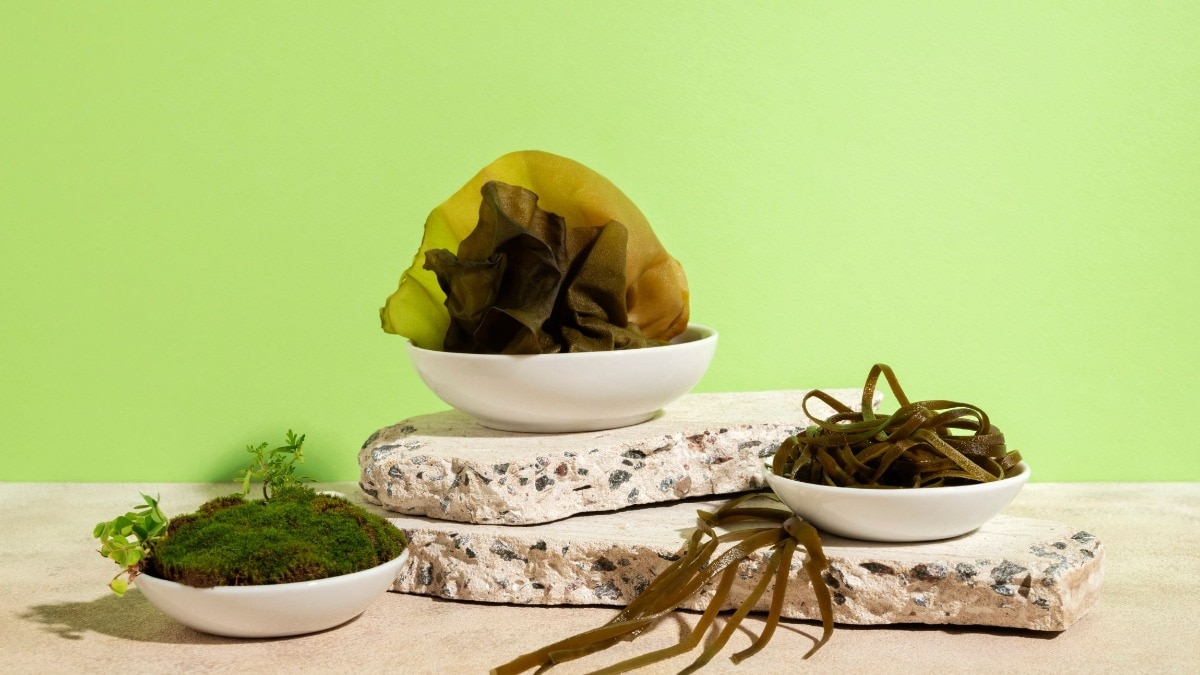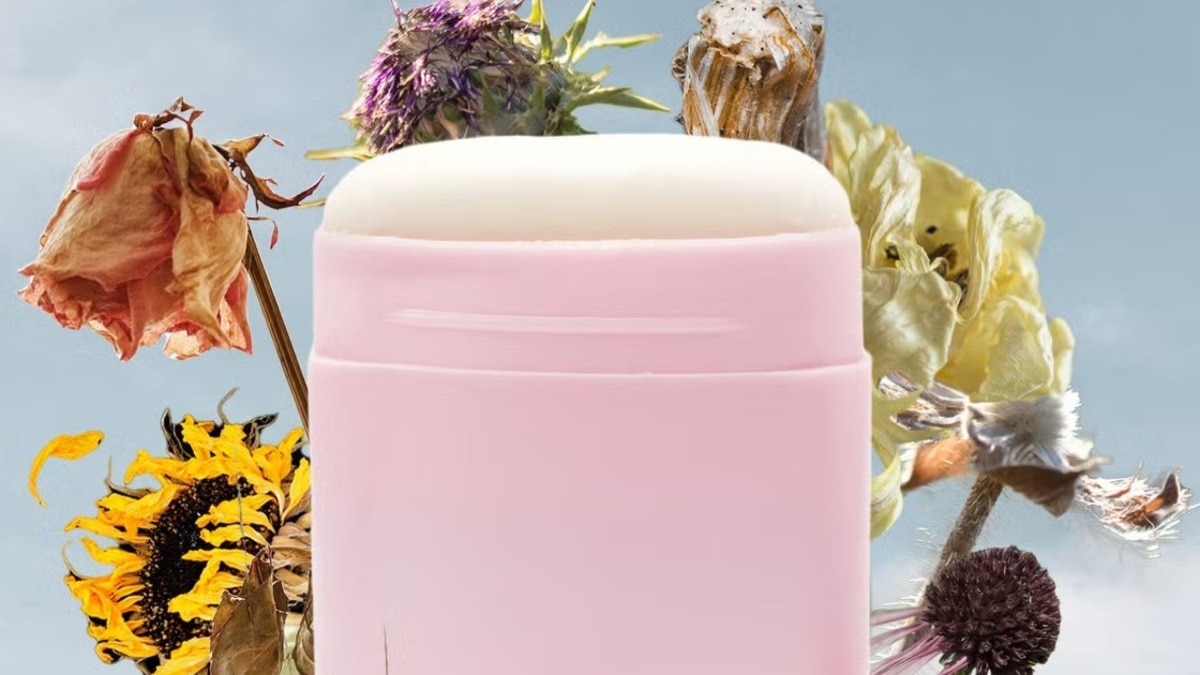When your body says you’re stressed, listen up!
Has life been throwing up health niggles lately? Stress could be the trigger, and your body often has plenty to say about it.


Did you think that stress was very much a mind-only thing, prompting anxiety, brain fog, and mood swings? In fact, there’s more of a mind-body connection than you may realise. From thinning hair to those mystery cold sores, a tense back to skin dryness and breakouts, stress could be the culprit. Want to soothe those symptoms and find a way to ease the tension?
Check out our instant-action tips and must-do daily de-stressing moves from the experts.
HEADACHES AND BACKACHES
It’s logical to suspect that stress can trigger headaches but, surprisingly, stress-induced pain can also settle in your upper back, shoulders, and neck.
THE STRESS CONNECTION: "When we’re under stress, our breathing changes from deep abdominal breaths to shallow chest breathing," says aromatherapist Ines Willis. "This causes neck and shoulder muscles to shorten, contract, and create pain."
EASING THE ACHE: Aromatherapy could be your Holy Grail. "Regular aromatherapy massages are super effective," says Ines. "Stress affects mind, body, and emotions. Aromatherapy addresses the same trio to help reset the healing process." The powerful plant molecules in essential oils move via the nose to the limbic system—the area of the brain that deals with mood and emotions—and help shift the way you feel. Add the massage and you get a double dose of tension soothers. Vetiver, frankincense, neroli and palmarosa top the de-stress menu.
TRY IT YOURSELF: "Self-massage in between treatments will underpin benefits," says Ines. "As an end-of-day ritual try a five-minute face and scalp massage (long sweeping fingertip strokes over the face and small circular strokes for the scalp) with a blend of four drops of neroli essential oil to 20ml of jojoba oil. Next, massage each foot for three to five minutes with a blend of 20ml sunflower seed oil, five drops of vetiver, two drops of ylang ylang, and three drops of palmarosa. A combination of face and foot massage is very grounding."
SHEDDING HAIR
Stray hairs gathering in the shower drain or on your brush is a telltale indicator of stress. But stress doesn’t reveal itself as a cause of hair loss immediately.
THE STRESS CONNECTION: Hair grows and sheds in phases. After the growing phase, hair stops and rests. When new growth comes through those resting strands get released. During a stressful time, cortisol prompts growing hair to jump too soon into resting phase, then six to 12 weeks down the line, you get fallout—temporary but still depressing.
FIXING THINGS: Start working on hair health and your de-stressing regime. Jane Martins, senior consultant trichologist at Philip Kingsley suggests:
Ensure you have a balanced diet with good protein intake (around 120g) for breakfast and lunch.
Manage your stress levels with meditation and exercise.
Ask your doctor for a blood test, particularly if you have a history of deficiencies such as low iron or low vitamin B12. You may need a supplement.
Look after your hair and scalp. Even with increased shedding, regular shampooing creates a good foundation for healthy hair growth.
FREQUENT COLDS
If you are regularly suffering from colds, coughs or infections, stress could have nudged your immunity out of whack.
THE STRESS CONNECTION: "When we’re stressed, our stress hormone levels rise. This disruption to our endocrine systems impacts our immune system and leads to poor responses to infections," says herbalist Monica Wilde.
WHEN IMMUNITY DIPS: Shore it up. Vitamin D is an immunity booster that we should be taking every day to counter effects including fatigue, poor sleep, low mood, and poor immunity. Herbs could be part of the plan, too, believes Wilde. "Astralagus, used for thousands of years in Chinese Medicine, is an excellent herb to take to build, nourish and tone the immune system."
COLD SORES
Stress doesn’t create them, but it can trigger the virus, which causes them to erupt around your mouth.
THE STRESS CONNECTION: "Many of us carry the cold sore HHV1 virus," says Wilde. It can sit happily and never be disturbed, but here’s the problem: "When stress tips our immune systems out of balance, the virus takes advantage of our weakened state," she explains.
WHEN A COLD SORE STARTS: Drink lemon balm tea (Melissa officinalis) and dab Melissa essential oil directly on to the sore. For sensitive skin, dilute 20 drops of Melissa to 15ml of a carrier oil.
A CHAOTIC GUT
Anyone who suffers with IBS will testify that stress can add to their gut chaos. So how does this happen?
THE STRESS CONNECTION: Digestion is controlled by the two branches of the autonomic nervous system:
The Sympathetic–which activates when we’re stressed, triggering stress hormones, turning off digestion, dropping digestive enzyme production and preparing us for fight or flight.
The Parasympathetic–When we’ve calmed down, this branch switches on digestion and ups digestive enzymes–it’s our rest and digest mode. The trouble with modern stress is that it is continual, and the parasympathetic system doesn’t get a chance to fully calm things down. Hence gut turmoil.
SOOTHE YOUR GUT: So how do we fix it? Naturopath Sarah Bowles-Flannery gives us a five-point blueprint for a happier gut:
Chew each mouthful 20+ times.
Eat regularly: "At the same time daily," says Bowles-Flannery. ‘The gut has an internal clock that can be programmed to produce those handy enzymes."
Focus: "Eat without distractions to help switch on the parasympathetic nervous system to optimise digestion."
Space meals: "Four to five hours apart—and no snacking! This allows the stomach to fully empty and digest."
Make lunch your main meal: When digestion is strong. Make breakfast and dinner lighter and eat dinner early.
UNHAPPY SKIN
They say stress shows first in your face, and it’s hardly surprising. Along with UV rays and pollution, it also gets hit by the stress hormone cortisol.
THE STRESS CONNECTION: "Cortisol is produced by skin cells as well as the adrenal glands—so the skin is both a target and a source of the stress hormone," says consultant dermatologist and hair specialist Dr Sharon Wong.
Skin ageing, she says, "is likely due to an excess of cortisol accelerating cell ageing by increasing DNA damage and reducing repair. It also damages key structural proteins collagen and elastin."
ACNE FLARES: Stress can be behind flares—even late-onset acne that can appear around menopause. "Cortisol up-regulates oil production from the sebaceous glands as well as proinflammatory molecules in the skin, which can cause flares," says Dr Wong.
SUPER SENSITIVITY: "Cortisol changes skin’s immune profile, making it more inflammatory, lowering the threshold for itching, sensitivity and irritation."
WHEN SKIN NEEDS SAVING: Stress may be unavoidable, but we can help control it. "Ideally, we need to build the resilience needed to manage stress in a healthy way," says Dr Wong. "Yoga, breathwork and meditation are really helpful when part of a regular routine, not just when stress arrives."
DRY SKIN
When your legs and, perhaps, arms and torso shed dry skin, stress can often be part of that dehydration equation.
THE STRESS CONNECTION: "Stress produces cortisol that breaks down ceramides, the tiny lipids between skin cells that moisturise skin and prevent the loss of water," says pharmacist Shabir Daya. "Added to that, cortisol hinders the production of hyaluronic acid, which holds many times its weight in water helping to plump our skin cells."
GIVE SKIN A DRINK: Taking a ceramide supplement could be a good move. "Studies indicate how effective they are when taken from within to tackle all dry skin concerns, including eczema and dermatitis," explains Daya. We suggest adding a body lotion with hydrating fruit and plant extracts.
Get the de-stress habit
Listen to music: A new study from The British Academy of Sound Therapy reveals that music takes 13 minutes to ‘release sadness’ and nine to make you happy. Try listening to Classic FM playlists (classicfm.com) for meditation or relaxation.
Take B vitamins: Research shows that B vitamins are natural stress zappers, helping to calm the nervous system, support immunity, and boost mood. Try taking a B complex in times of stress.
Learn to meditate: It’s the best stress diffuser. "Newbies should try the easy and beautiful “so hum”, a Sanskrit chant that means “and so it is”’, says trainer Amy Malloy. ‘Say “so” on an inhale and “hum” on an exhale to help you find acceptance for what’s happening in the moment.’
Ration your tech" Fear of missing out and being constantly ‘on call’ raises stress levels. Can’t switch off? Try Malloy’s tips…
Leave your phone in another room, turned up only for calls.
Change your phone display to greyscale–it makes it far less enticing.
Avoid the rabbit hole! Make a mental note of what you are picking the phone up to do, then stop when you’ve done it!
Think positive: It’s reckoned that having a positive outlook enables you to cope better with stressful situations. Easiest way? Smile! "It’s one of the best ways to switch up your mindset," says Alison Davies, author of Manifest Your Power (Hardie Grant). "Smile and feel the expression light up your face. Focus on a positive thought, even if it’s something as simple as, “I am filled with positive energy.”’
This piece originally appeared in the November 2023 print edition of Good Housekeeping, UK










